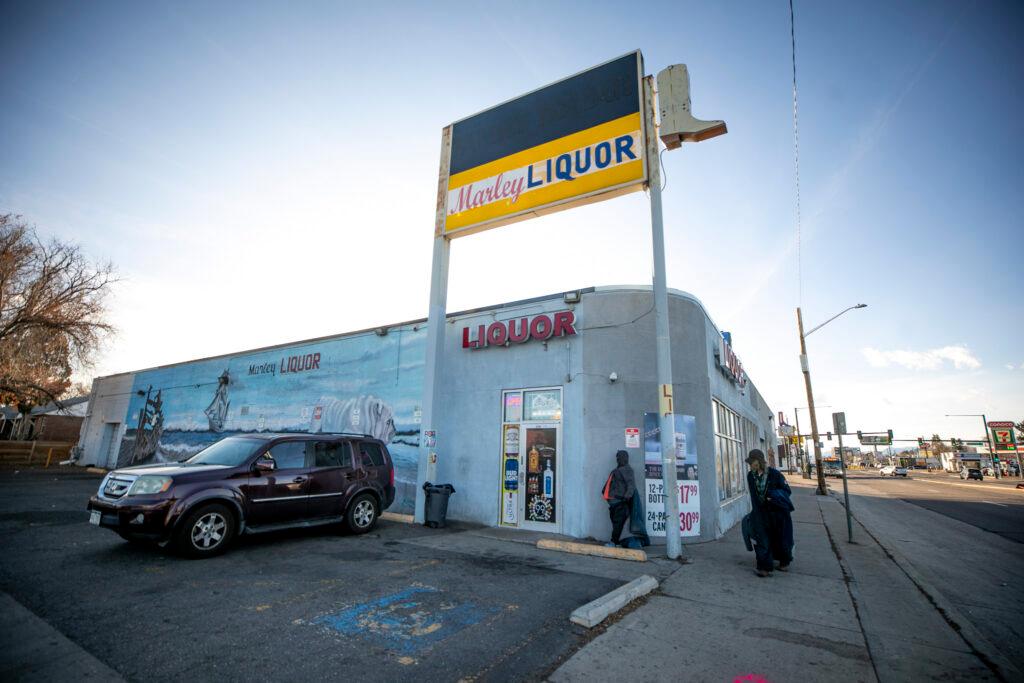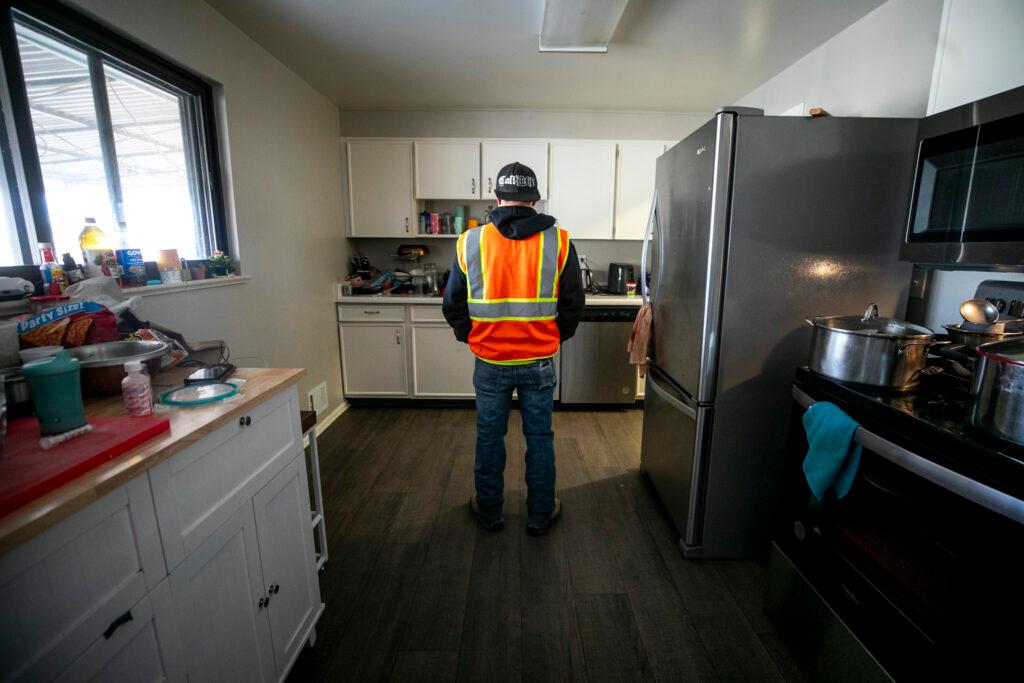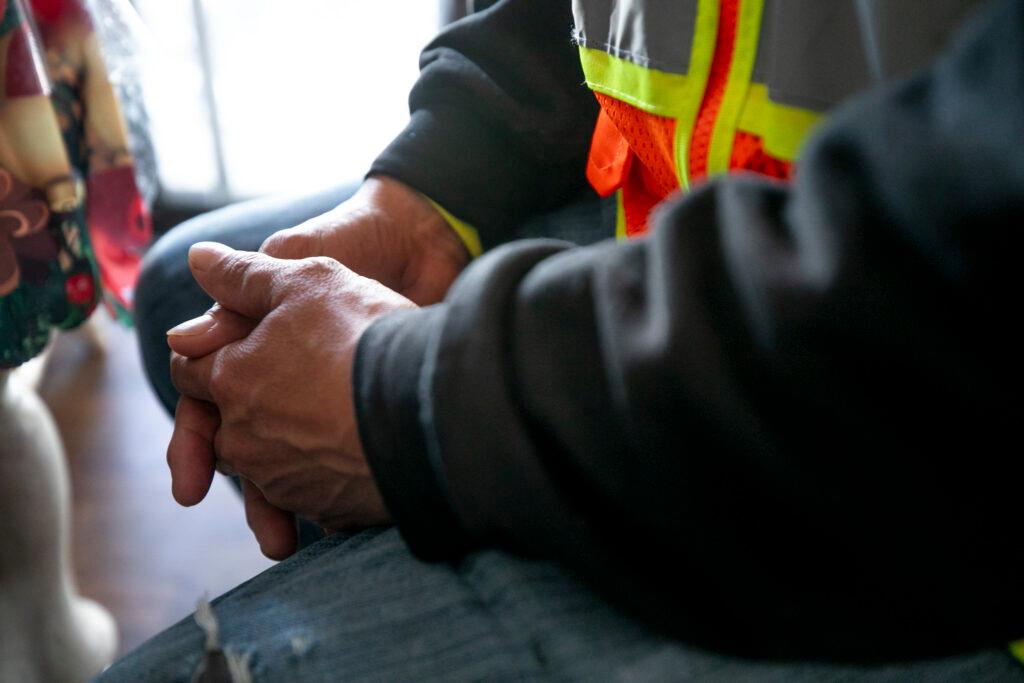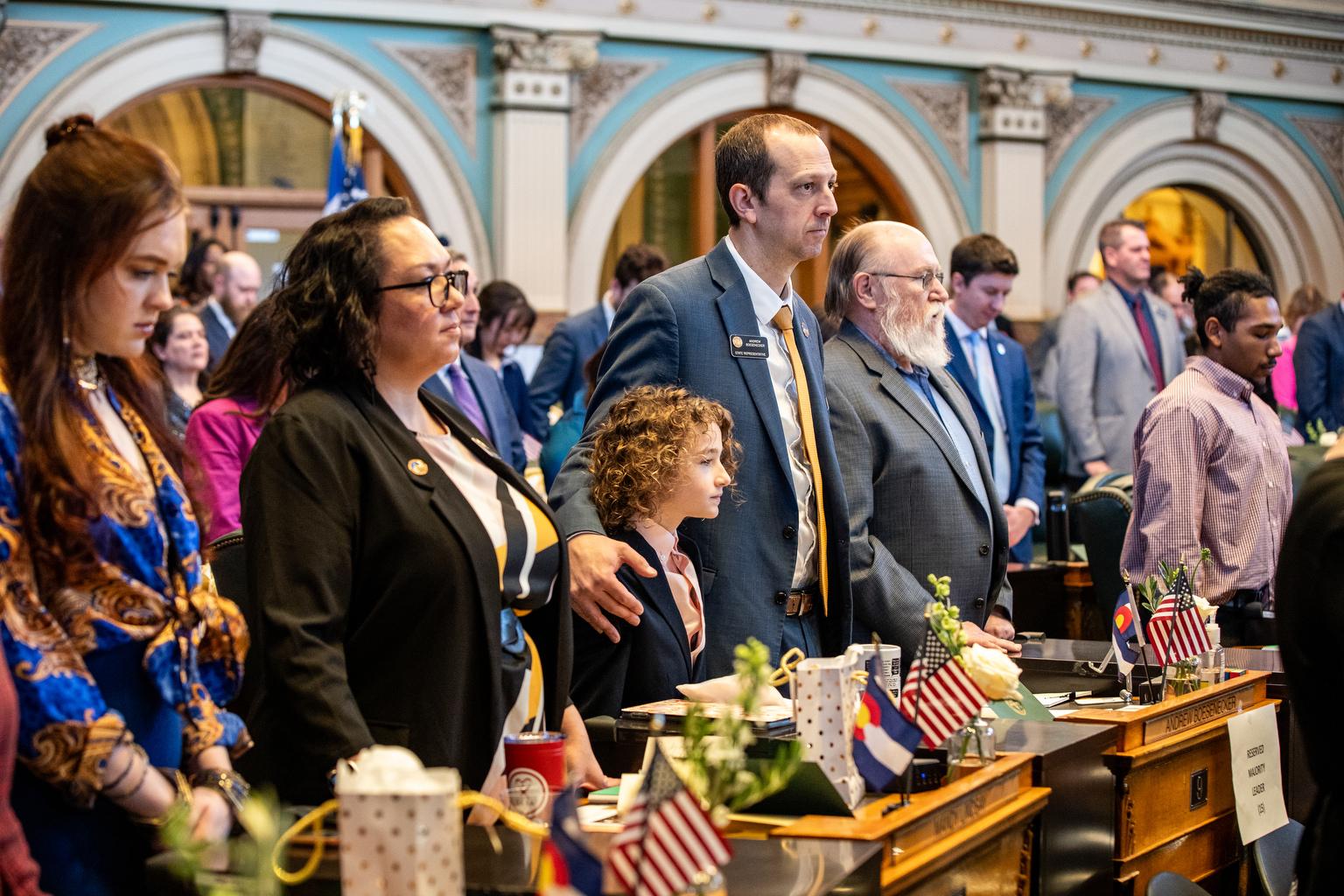
For two years, Denver welcomed thousands of new immigrants from Central and South America, housing and clothing the new arrivals mostly coming off of buses from Texas — much of it at taxpayer expense.
But in that time, the city’s police department has doubled down on municipal tickets exposing some of those newcomers to expedited deportation by cracking down on low-level municipal crimes ranging from window washing to prostitution.
“The real issue is disproportionately ticketing people for these low-level, quality-of-life crimes,” said Hans Meyer, an immigration lawyer whose firm has represented dozens of undocumented clients facing municipal charges through a contract with the city’s public defender’s office. His office also helped with 55 court appearances for undocumented immigrants in part of 2023 and 180 court appearances for the same period last year.
“I don’t think this issue is about accountability. The real issue is the city sweeping thousands of immigrants into our legal system, triggering horrific immigration consequences due to minor brushes with the law and teeing them up for mass deportation.”
— Hans Meyer, immigration lawyer

“I do believe it’s unintentional, but we need to make sure the principles of the city line up with the rhetoric of the city,” he said.
City-issued tickets for window washing, trespassing, park curfew violations and nuisance over three years have jumped roughly 70 percent, from 1,978 in 2022 to 3,347 in 2024, according to Denver County Court records.
Municipal public defenders say they have been alarmed for months by the surge in low-level cases they are seeing in county court.
Then came the more than a half dozen prostitution stings conducted by DPD that added to their worries about the consequences for recent immigrants.
In eight sting operations from June 2023 to October 2024, DPD conducted operations targeting men, known as Johns, soliciting prostitution along East Colfax Avenue.
Wearing regular plainclothes, female police officers —some speaking Spanish, some not — would specifically ask men if they wanted to pay for sex.
The men were often food delivery drivers or coming off of construction shifts or stopping by liquor stores.
Ethnicity is not recorded accurately in police or court records, but the majority of the men arrested in these stings had Latino surnames, according to a review of court records by CPR News and, separately, the municipal public defender’s office.
For example, one sting in August 2024 resulted in 22 arrests, and 17 of those men had Latino surnames.
Denver Police Department arrest numbers reflect the emphasis on prostitution crimes. Solicitation tickets have jumped 143 percent since 2023, according to DPD, exceeding pre-pandemic levels.
Municipal public defenders say the cases were all exactly the same, using the same language in the arrest affidavits “like a Mad Lib,” they said, referencing the fill-in-the-blanks children’s books. They numbered in the dozens.
In several cases, the men didn’t appear to understand what was going on or were trying to be polite, but never agreed to any transaction. They simply smiled, said OK, and some asked for a phone number, then drove away.
But those men were called in, pulled over, arrested, spent time in jail and had their cars temporarily confiscated. Several of those cases were ultimately dismissed by prosecutors, but dozens are still pending in the city municipal courts.
Even if those cases get dismissed, the undocumented men have a record that immigration officials can access. That is what makes the stakes for these kinds of nuisance crimes much higher for immigrants than American citizens.
Crimes of “moral turpitude,” including prostitution, funnel undocumented immigrants down the pipeline for more rapid deportation, attorneys said.
For an immigrant with Temporary Protected Status, for example, someone making a claim for asylum based on conditions in their home country and awaiting a decision on that claim, two municipal tickets can result in the loss of that status. That would leave them without protection against deportation and no way to legally work.
“The last many months have been really hard for this office and scary about giving advice. When you don’t speak the language and a white woman is approaching you and asking you questions, you may be agreeing just to be polite, to get along, never understanding that they’re going to be arrested and charged with something that could have such significant immigration consequences.”
— Colette Tvedt, Denver’s chief municipal public defender
Tvedt and her lawyers say they first noticed the increasing prostitution cases when they would go to first court appearances and see a flurry of undocumented immigrant men all facing the same charges in a single day.
“My lawyers would come back from court and say ‘another sting…,’ and would need another lawyer because there had been another sting,” Tvedt said.
The defenders say that mostly, these stings were happening in the late mornings or afternoons — something backed up by reviewing arrest affidavits with time stamps.
Denver Police acknowledge they have worked prostitution stings along the East Colfax Avenue corridor solely in response to complaints from residents and businesses, particularly between Spruce Street and Yosemite.
On the corner of Colfax and Spruce sits Marley Liquor, a cannabis shop and an abandoned building with an even bigger abandoned parking lot, littered with convenience store trash, condom wrappers and beer and alcohol containers.

A manager at Marley who declined to give his name recently agreed to a short interview through a see-through, protective shield while tending to a busy clutch of morning customers. He said he was appreciative of the DPD enforcement efforts and that prostitution on the corner has significantly died down since the height of his complaints last summer.
“It’s gotten a little better now, but in the summer it was really bad,” he said, noting he called the District 2 substation a number of times after seeing bikini-clad girls on the corner. “They’ve been showing up, it got way better than it used to be, but it’s still going on.
Denver Police Commander Paul Jimenez runs the city’s “vice” unit, which includes enforcement of solicitation crimes.
He rejected that the police department has targeted any specific group and said he hated that a legitimate enforcement priority driven by residential complaints was getting “politicized.”
“I don’t want this seen as some sort of political issue about immigration because I think that takes away from the real issue,” Jimenez said. “We have individuals here even by choice who are making a poor choice in what to do when it comes to their public safety and health … we want to hold the trafficker to the highest level of accountability that we can.”
DPD said they are deeply concerned with human trafficking crimes — which have been on the uptick since the tens of thousands of new immigrants arrived starting in January 2023.
“At the end of the day, no one starts out when they’re 10 years old and says when I grow up, I want to sell my body for money,” Jimenez said. “If we can intervene at an early stage, and offer resources and referrals to get them out of the lifestyle, that is what we want to see.”
Jimenez confirmed that the police department has increased “John” stings in 2024 as part of the overall operation trying to cut down on solicitation and trafficking.
“We are trying to address the buyer side of the equation and we’ve made it a goal to increase the number of John stings in 2024, but we’re trying to address the supply side and the demand side of the equation. I hate to make it sound like an economic equation but that’s ultimately what it is.”
— Paul Jimenez, Denver Police Commander who runs the city’s “vice” unit
Jimenez said solicitation crimes are often cited by residents as “quality of life” problems that spiral into something worse.
“When they (Denver residents) are driving home from work or picking up their kids from soccer practice and they see two, three, four, five bikini clad women standing on the street corner, that’s problematic for the people who live there,” he said. “Or they’re finding used condoms in the alley or they don’t want their kids to play soccer in the backyard when there is a vehicle in the alley where a sex act is being committed.”
Municipal public defender Ashley White has represented dozens of these cases in county court — some of which have been dismissed because of her numerous motions filed in court.
White describes one summer 2024 case involving a Venezuelan man who arrived in February 2024 and was granted asylum. CPR News isn’t naming the man because he wasn’t ultimately convicted of any crime.

It was 10:30 a.m. and the female undercover officer spoke very little Spanish.
The undercover officer knocked on the man’s car window. He was a Door Dash driver, White said. He told the undercover officer he didn’t speak “mucho English.”
The undercover officer offered to perform a sex act for $50. He told her in Spanish, “I have to go here.”
And she said, “oh you have to get money? OK, you’re going to go get money.”
He drove away, and was immediately pulled over for soliciting for prostitution. His car was impounded and he was taken to jail.
Ultimately, the city attorney’s office decided to drop the case — but the arrest itself could expose him to deportation because it creates a record that federal authorities can access.
Jimenez said it was a strict policy that none of the undercover female officers approached the men — they had to wait to be approached.
Tvedt and other lawyers emphatically say that’s not true and the tapes heard by CPR start with the woman talking or greeting the men, but it is hard to know when the record button was pushed in the undercover operations.
Jimenez defended his officers and said there was no entrapment.
“I think that’s a last-ditch effort defense for an individual who engaged in activity that he shouldn’t have been and some of these individuals have jobs and they’re doing it on work time and some of these individuals have families and it’s the first claim to their spouse when that occurs,” Jimenez said. “It ends usually in our favor.”
Tvedt and other advocates said she fully supports officers targeting human traffickers — but that these John stings are not those cases.
“These cases have nothing to do with that, they have nothing to do with the things they’re seeking to target,” she said. “I do not understand why they are charging these people. It seems inhumane in Denver, with our mayor and what we are trying to accomplish here.”
The city attorney’s office said they supported the police’s efforts because they, too, were hearing complaints about quality of life crimes — excessive panhandling, window washers in the city’s busy intersections — from the city’s residents.
They also are mindful that complaints about prostitution, especially along Colfax Avenue, are on the increase.
“I do know that they have responded to some pretty significant community complaints,” said Marley Bordovsky, a city prosecutor in the code enforcement office. “Used condoms on people’s front lawns, to the tune of 10 to 20 every night. People having sex on their front lawns, women walking around basically naked down there. It was having a huge impact on our community members and we were hearing about it.”
Tvedt said she has asked Bordovsky’s office for “immigration safe” plea deals so undocumented people charged with these petty infractions could have an outcome that may not tip off federal immigration authorities.
An example of this would be a plea down from solicitation to public nuisance so it wouldn’t be considered a crime of “moral turpitude,” she said.
In an interview with CPR News, though, officials from Mayor Mike Johnston’s office said they already take immigration status into account.
“We are very mindful of the disparate impacts of criminal contact for people who may be undocumented,” said Sarah Plastino, the former director of the mayor’s Newcomer Program. She resigned in late December.
“The city really cares about immigrants and at the same time, there are tough issues that come up when you’re governing."
— Sarah Plastino, former director of Mayor Mike Johnston’s Newcomer Program
She added there is “no special pass” just because there are immigration consequences for certain criminal behavior.
A former immigration advocate and an attorney, Plastino said the immigration consequences for criminal contact can vary widely. In her past jobs, she saw immigration judges disregarding “immigration safe” pleas because he or she will look at the underlying criminal accusation or alleged conduct and deport them anyway.
“Sometimes, no matter what, it’s going to have an impact on their immigration status,” Plastino said. “It’s tough and our immigration system prioritizes people with criminal contacts … but as a municipality we do have to balance our public safety.”
She said if they chose not to enforce the city’s solicitation concerns because the defendants are migrants, “that imposes a disparate outcome based on immigration status. There needs to be consequences for behavior that influences a community.”
One Aurora man landed squarely in the crosshairs of this tussle last fall.

In September, the 44-year-old Mexican concrete worker who has been in Colorado for more than two decades was driving home from a job on Colfax Avenue and Kipling Street, on the west side of town. Because Interstate 70 was backed up, he took Colfax Avenue the whole way home, and made a stop at Marley Liquor for beer before heading home in Aurora, near Interstate 225 and Chambers Road.
At Marley’s, he met a woman who called herself Daisy. She spoke Spanish. After exchanging pleasantries, she got right down to business. She offered to perform a sex act.
“Cuanto pagas?” she asked, how much will you pay?
He said he didn’t know when he would see her again and she offered her phone number.
The man told Daisy he wanted to go dancing, but never agreed to pay for sex, according to the tape and the transcript of the exchange. He was charged anyway.
Speaking in his lawyer’s office and wiping tears from his eyes, the man, speaking Spanish, said he wasn’t looking for any trouble.
He has no criminal record except a DUI from 2009, according to court documents. He remains undocumented, but is married and supports five American-born children.
“I thought she was approaching me to ask for help, money or something. I wasn’t looking for that,” he said. “I don’t have the mind to go around looking for women on the street, much less be unfaithful to my wife at all.”
The city attorney’s office filed a motion to drop the man’s prostitution case — just a couple of days before Christmas.
Hans Meyer, the man’s lawyer, said his story is a cautionary tale of overpolicing the city’s immigrants.

The 44-year-old Aurora man who got caught up in a Denver Police prostitution sting in his home. Dec. 17. 2024. 
Immigration attorney Hans Meyer in his Denver office. Jan. 3, 2025.
“He was arrested and prosecuted in a prostitution sting for a crime he didn’t commit,” Meyer said.
“Yet he had to pay $1,300 to get his car out of impound and he isn’t allowed to drive it for a year. He had to pay thousands of dollars to hire me and beg and plead for months with the prosecution to look at this case. Then he had to spend over half a year going to court and going through the stress and anxiety and decide whether or not he’ll go to trial.”
The man is relieved, but Meyer said his journey is likely not over.
“For better or for worse, he is still a target now,” Meyer said. “The city is shaking their hand and welcoming them in one moment, but inadvertently putting a knife into their back the next because the policies are directly inconsistent with one another.”









